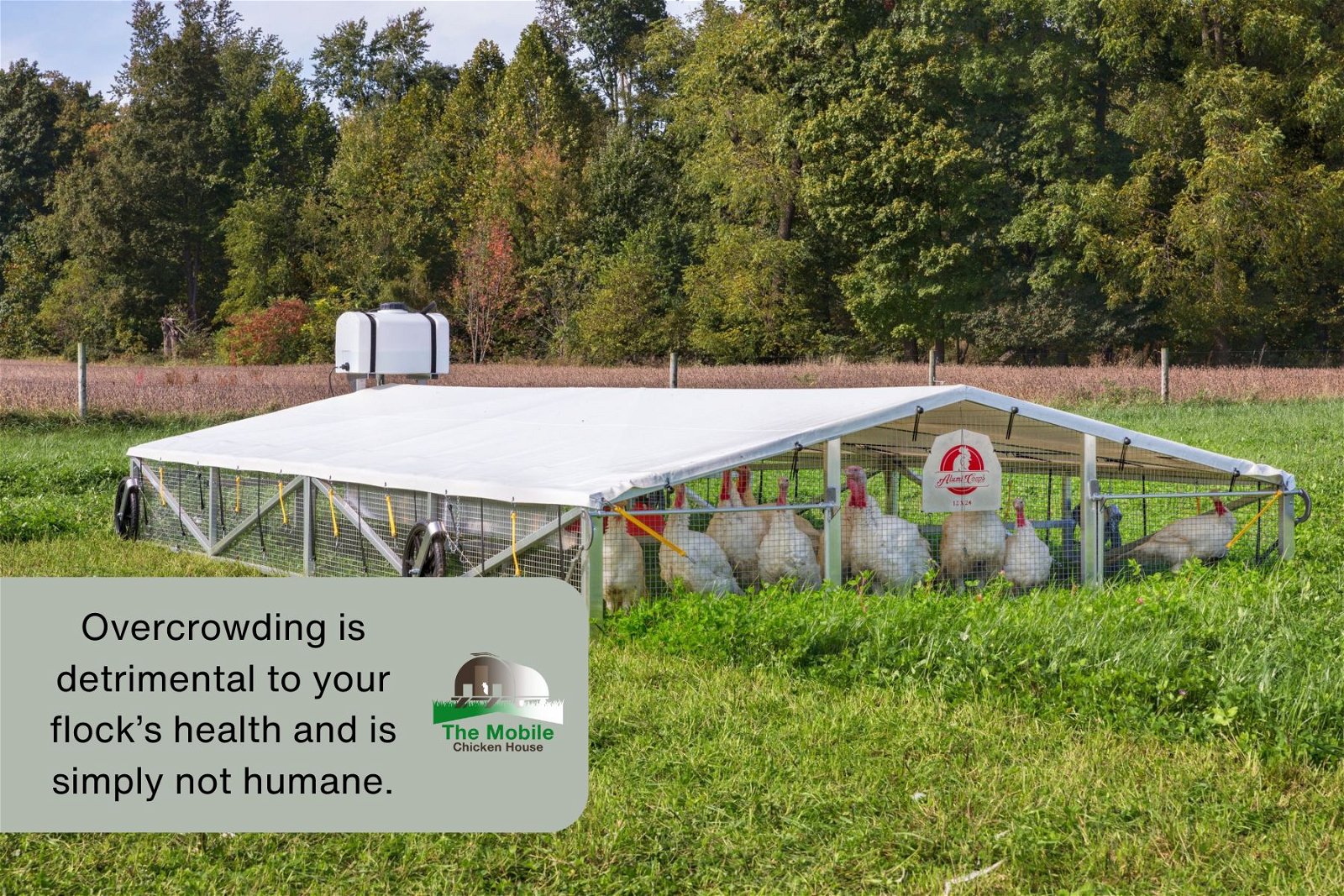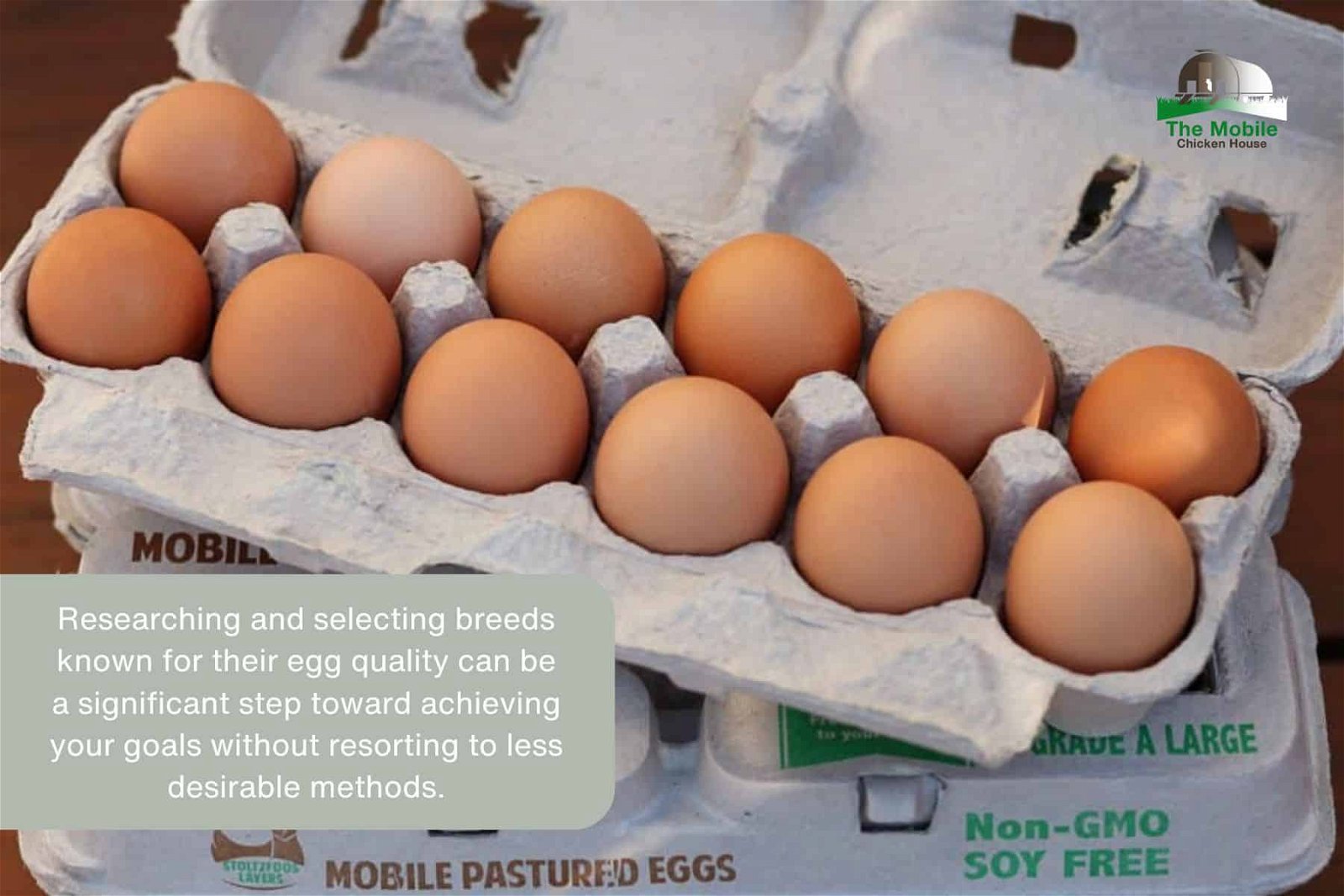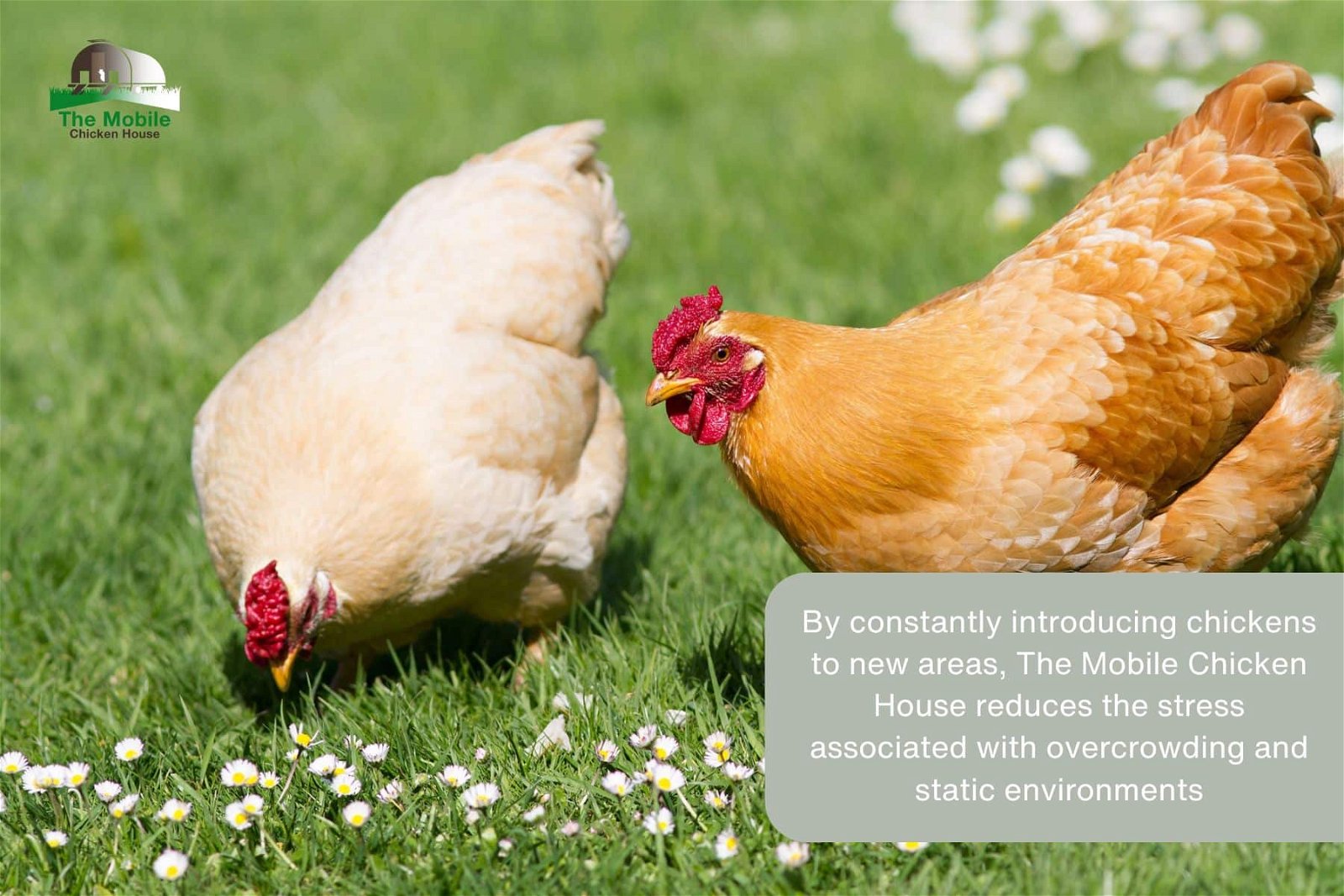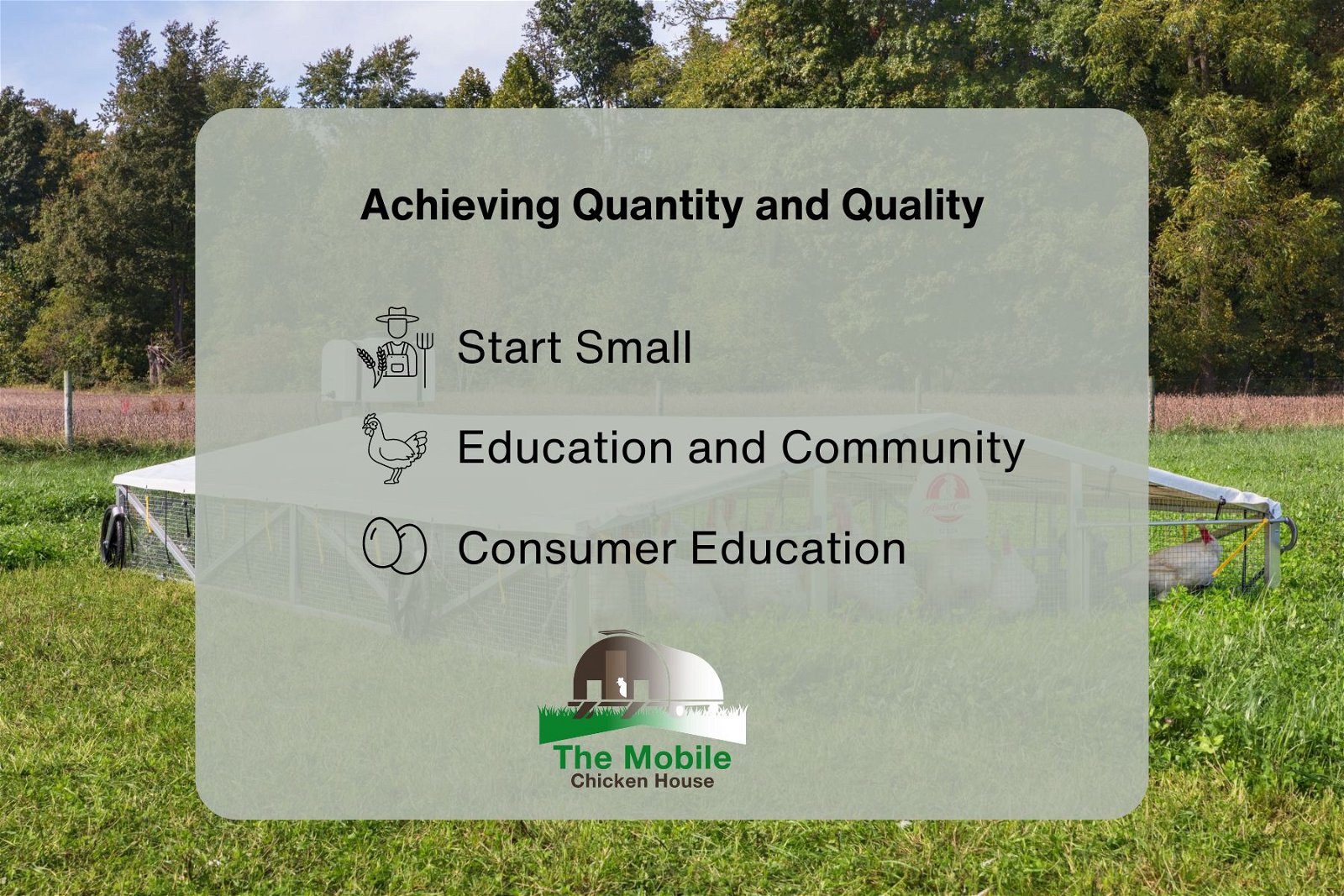Striking the Perfect Balance: Boosting Egg Production Sustainably on Your Farm
Ever scratched your head, wondering how to get your chickens to produce more eggs without turning your back on the good, honest farming we all stand for?
In the world of farming and ranching, especially when it comes to managing flocks of several hundred chickens, the perpetual quest is for more eggs. The trouble is that for those of us committed to sustainable farming and the welfare of our animals, increasing egg production often presents a problem:
How do we produce more without compromising on the quality of the eggs or the well-being of our chickens?
Here at The Mobile Chicken House, we get that. We know the egg market is competitive, and having the right equipment makes the difference in profitability and quality.
If you want to learn more about how to increase egg production without compromising the quality of your eggs, then read on.
The Quest for More Eggs: A Double-Edged Sword
There are numerous methods to increase egg production, ranging from altering feed to modifying the living conditions of your chickens. Some of these methods, however, come with significant drawbacks.
Here are a few methods of increasing egg production that you should view with a healthy amount of skepticism and caution. In our opinion, these are worth avoiding.
- Hormone Supplements: It's true that hormone supplements can lead to a spike in egg production. However, the FDA banned the use of hormones in the poultry business decades ago. Apart from this, the method raises ethical concerns and can have adverse effects on the health and longevity of the chickens. Not to mention, consumers are increasingly wary of such practices, favoring eggs produced more naturally.
- Overcrowding: Let’s be clear – chickens don’t need the same amount of space as many animals. They are flock animals, which means they actually enjoy being in close quarters with other chickens. However, overcrowding is detrimental to your flock’s health and is simply not humane. While it’s true that putting more chickens in a smaller space means you get more eggs without more investment, it’s simply not a good option.

- Overfeeding: There’s nothing wrong with feeding your chickens a high-quality diet that encourages them to lay more, high-quality eggs. However, excessive feeding that leads to obesity and related health problems for your chickens is not a good option for increasing your egg yield.
Enhancing Egg Quality: The Good Stuff
On the flip side, there are numerous ways to improve the quality of the eggs your chickens produce, which often align more closely with sustainable and ethical farming practices.
Let’s take a look at a few of the options you have.
- Nutrition: A balanced diet rich in nutrients is key to producing high-quality eggs. Diets that include a variety of grains, greens, and protein sources, along with ample calcium, contribute to stronger shells and richer yolks.
- Living Conditions: Happy chickens lay better eggs. Ensuring your chickens have ample space to roam, forage, and engage in natural behaviors leads to not only healthier chickens but also superior eggs.
- Breed Selection: Some chicken breeds are naturally inclined to produce higher-quality eggs. Researching and selecting breeds known for their egg quality can be a significant step toward achieving your goals without resorting to less desirable methods. If you want to learn more about this, read our blog, The 6 Best Chicken Breeds For Laying Eggs [and tips on when to buy them].

Quantity vs. Quality: Can You Have It All?
You might be asking yourself: Is it even possible to increase both the quantity and quality of eggs simultaneously without compromising on sustainability or animal welfare? Can you have a profitable egg business and still care for your chickens?
Fortunately, the answer to these questions is yes!
Let’s unlock the secret ingredients!
The Mobile Chicken House: A Game Changer
The Mobile Chicken House offers an approach to managing large flocks while addressing the concerns of both quantity and quality of eggs.
Here’s how:
- Natural Living Conditions: These mobile units allow chickens to live in a more natural environment, moving across pastures and accessing fresh forage daily. This not only improves their overall health and well-being but also leads to higher-quality eggs.
- Stress Reduction: By constantly introducing chickens to new areas, The Mobile Chicken House reduces the stress associated with overcrowding and static environments. Lower stress levels in chickens have been directly linked to increased egg production and quality.

- Improved Nutrition: Access to diverse natural forage and insects as part of their diet means that chickens are not solely reliant on feed. This varied diet enriches the nutritional content and flavor of the eggs.
- Ethical and Sustainable: This method aligns with sustainable farming practices, enhancing soil quality and biodiversity on the farm. It also addresses ethical concerns by providing chickens with a life that closely mimics their natural living conditions.
Balancing Act: Achieving Quantity and Quality
The Mobile Chicken House represents an effective strategy for balancing increased egg production with improved egg quality in a sustainable and ethical manner. By addressing the core needs of the chickens—nutrition, living conditions, and natural behaviors—farmers and ranchers can enjoy the best of both worlds.
Implementing the Change
The best part? The Mobile Chicken House is designed for anyone to use. It is true that transitioning to a system like The Mobile Chicken House may require an initial investment and a shift in farming practices. Nevertheless, the long-term benefits—healthier chickens, higher quality and quantity of eggs, and alignment with sustainable and ethical farming principles—far outweigh the initial costs.
Here’s how to do it:
- Start Small: If a complete overhaul seems daunting, start with a smaller flock and gradually expand as you become more comfortable with the system. We all know it takes time to grow.
- Education and Community: Engage with other farmers who have successfully implemented mobile housing systems. Learning from their experiences can provide valuable insights and support. The designers of The Mobile Chicken House are themselves chicken farmers who want to share what they have learned with others.
- Consumer Education: Share the story of your farming practices with your customers. Many consumers are willing to support and even pay a premium for ethically produced, high-quality eggs.

In Conclusion
Let’s get real about producing more eggs: it’s not just about cranking up the production line. We’ve got to keep our eggs awesome and our chickens happy and healthy.
That’s where something cool like The Mobile Chicken House comes into play. It’s a win-win: our chickens get a better life, and we get more high-quality eggs without ditching our principles.
By getting smart and offering innovations like this, we’re not just farming; we’re building a future where doing well and doing good go hand-in-hand.
So, are you ready to lower your costs while increasing quality egg production?
Contact us today to get started!




